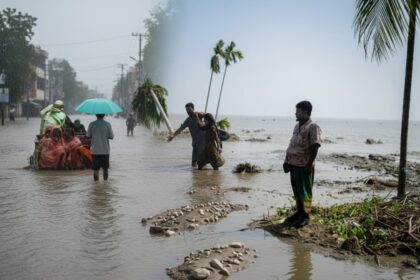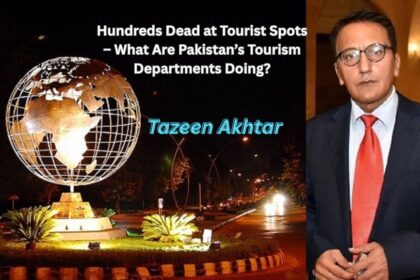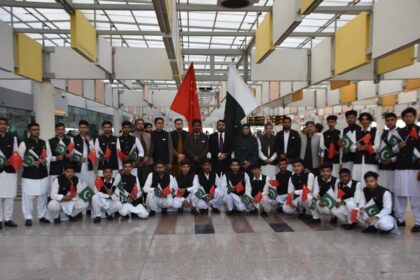Inflation Has Crushed the People
By: Zaheer Ahmad Awan
Inflation is like a silent disaster it destroys societies without making noise. When a worker cannot afford bread for his children, when a white-collar man’s dignity is humiliated by rising prices, and when the poor must choose between food and medicine, that is the real collapse of a nation. Unfortunately, Pakistan is facing this reality today.
The prices of flour, sugar, rice, pulses, vegetables, petrol, electricity, and gas have reached unbearable levels. For an ordinary citizen, survival has become a daily struggle. A responsible state’s first duty is to provide its citizens with basic necessities and keep them within reach. Yet, in Pakistan, this connection between the people and the state seems broken.
Life Under Economic Pressure
Unemployment and inflation have crushed the backbone of society. Daily wage workers, rickshaw drivers, street vendors, private employees all are trapped in financial hardship. With job opportunities shrinking and prices rising, the average person is turning into a victim of depression.
The constant rise in food prices, utility bills, and fuel costs has increased family disputes, mental stress, suicides, and even crime rates. The poor and middle class are losing hope for a better future.
Government Inaction
Sadly, the government’s response has been limited to statements and meetings.
Price control committees, commissioners, deputy commissioners, and magistrates appear active only in social media posts, but the ground reality remains unchanged.
The system of price control is ineffective, and market mafias operate freely. Hoarding and profiteering go unchecked, while the state watches silently. There seems to be no long-term mechanism to stabilize prices or protect the common man.
Constitutional Responsibility
The Constitution of Pakistan guarantees every citizen the right to basic necessities food, clothing, housing, education, and healthcare. But this promise has become symbolic. The government’s role appears more like that of a spectator than a guardian.
If inflation and unemployment continue at this pace, the frustration of the people could turn into social unrest.
Lessons from the World
Many countries once faced similar economic challenges but managed to recover through wise policy decisions. Pakistan can learn from these successful examples.
In the early 2000s, Turkey suffered high inflation and unemployment. The government adopted strict fiscal discipline, reduced unnecessary subsidies, and empowered its central bank to operate independently. As a result, inflation dropped significantly, investment increased, and people’s living standards improved.
China focused on employment-based growth. Small and medium enterprises were supported through low-interest loans, and agricultural subsidies ensured food security.
By empowering people to earn rather than rely on aid, China managed to lift millions out of poverty.
Once poorer than Pakistan, Bangladesh became an economic model through reforms in taxation, industrial policy, and women’s employment.
The government introduced digital monitoring of prices and transparency in food distribution. This made essential items affordable for the masses.
Singapore introduced a National Wage Policy linking salary growth with inflation and productivity rates.
This helped control inflation and maintain the purchasing power of its citizens.
India adopted a digital price monitoring system and strengthened its Public Distribution System (PDS).
Through ration cards, subsidies, and support for farmers, India managed to protect its lower-income groups from the worst effects of inflation.
What we Must Do
we need practical, long-term measures to control inflation and unemployment.
Key steps include:
- Investment in agriculture to boost food production and reduce imports.
- Digital price monitoring systems for real-time market oversight.
- Strict action against hoarding and profiteering through special enforcement teams.
- Creation of jobs through skill-based training and support for small businesses.
- Rationalization of electricity and gas tariffs to ease household expenses.
- Gradual reduction of interest rates to encourage investment.
- A transparent subsidy mechanism to ensure benefits reach those who truly need them.
Role of Society.Inflation cannot be fought by the government alone. Society must also act responsibly.
Hoarding, black marketing, and unnecessary consumption only worsen the crisis.
Citizens, traders, and institutions must work together to build a fair and transparent economy.
Our country is rich in natural resources and human potential.
What it needs is honest leadership, economic discipline, and long-term planning.
If the government prioritizes the welfare of its people, ensures transparency, and protects the vulnerable, inflation and unemployment can be controlled.
A nation is not strengthened by power or wealth alone it stands firm when its people live with dignity and stability.
If Pakistan learns from global experience and takes consistent action, then one day, “inflation” will no longer be a curse but a conquered challenge.











